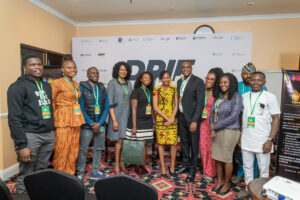
The Pan African Climate Justice Alliance (PACJA) in partnership with Kenyatta University opened the third Nairobi Summer School of Climate Justice (NSSCJ) cohort in Nairobi Kenya. The official opening symposium was held at Kenyatta University and attracted over 500 participants featuring over 250 students from across the continent and beyond.
Addressing participants, Dr. Mithika Mwenda described Nairobi Summer School on Climate Justice as a unique and innovative initiative that aims to equip young leaders and activists with the knowledge, skills, and tools to advance the cause of climate justice in their communities and beyond.
Defending the historical idea of starting the Nairobi Summer School on Climate Justice initiative, Dr. Mithika Mwenda, the Executive Director of PACJA said that the mobilization, policy engagement, and other engagements that PACJA has been undertaking is a team effort and hence the Nairobi Summer School was a quick idea bearing solutions.
“We have been engaging with policymakers and stakeholders to influence and shape policies and actions that are responsive to the needs and aspirations of the people. We have built alliances and partnerships with other actors and movements that share our vision and values. But we cannot do this alone. We need you, the young leaders and activists, to join us in this struggle.”
Regarding the theme of the Symposium, “Connecting Ideas and shaping narratives for Climate Justice, ” Amb. Ayele Kabede, the Program Manager of the Swedish International Development Agency (SIDA) pointed out that the program is invaluable in building intergenerational knowledge in the context of Climate Change.
“I am glad to hear that this edition of Nairobi Summer School brought together over 600 hundred physical and virtual students to be equipped with knowledge on Climate Change. This is a big achievement, said Amb. Kabede before he encouraged youth to think of the valuable contribution because they are actors of change in climate action.
“That is why you are here and that is why this platform is here for you”, he stressed.
The Netherlands is one of the developed countries that has been supporting Climate action and was represented by Amb. Maarten, the Dutch Ambassador in Kenya. appreciated the initiative which he qualified as the groundswell of youth climate activists.
“Climate change is indispensable in addressing the existential threat posed by Climate Change.
The voices of people and communities need to be heard to influence decisions and policies that
will impact their lives for the years to come”, said HE Amb. Maarten Brouwer.
He also added that “Strengthening justice is a priority to our work to contribute to the 2030 agenda and to Leave No One Behind and time for incremental change is over.”
The Permanent Secretary to the Ministry of Education said that Climate Change has been destroying infrastructures, schools, and other learning materials, and hence mainstreaming climate change in all education systems is important to build the capacities of the young generation.
“The Ministry of Education aims to inspire students to take action in advocacy and action on climate change through environmental clubs, tree planting initiatives to implement environmentally friendly initiatives in their communities, intimated Hon, Ezekiel Machogu, the Cabinet Secretary to the Ministry of Education, Kenya.







 To take advantage of the social and economic benefits of shipping’s green transition, African maritime leaders are being encouraged to implement infrastructure to train and upskill seafarers.
To take advantage of the social and economic benefits of shipping’s green transition, African maritime leaders are being encouraged to implement infrastructure to train and upskill seafarers.






